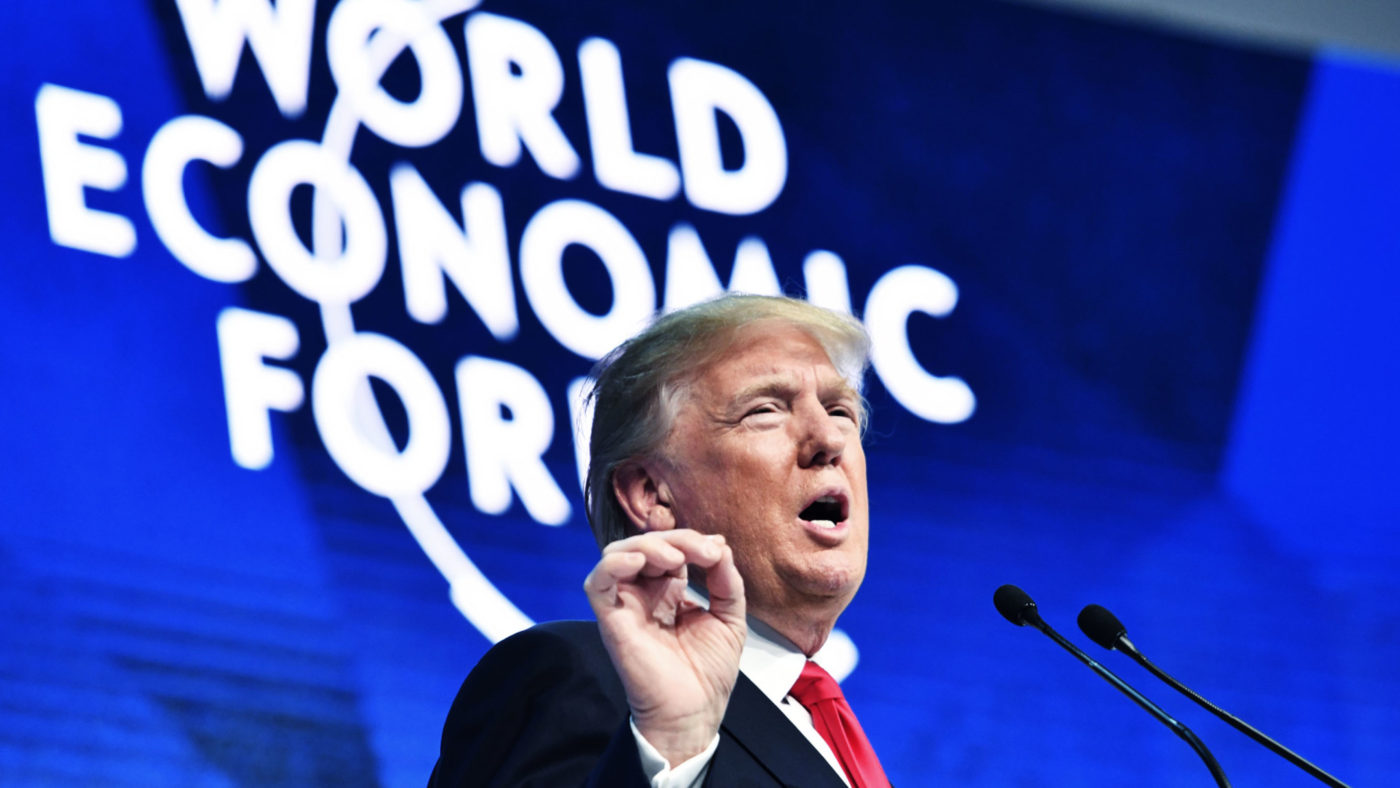This time last year, Xi Jinping’s speech to the World Economic Forum in Davos was being heralded as a historic turning point. Just days before Donald Trump delivered a dystopian inaugural address on the theme of “American carnage”, Xi sung the virtues of globalisation and free trade.
It was a changing of the guard: as America looked set to abdicate its position of political and economic leadership, China announced its candidacy to fill the vacancy.
A year on, the backdrop to the Alpine jamboree is the rosiest global economy outlook in more than a decade, with growth accelerating, in no small part thanks to the strength of the US economy.
Trump’s appearance at Davos proved that he is just as capable as Xi when it comes to reading platitudes about “cooperating towards shared dreams” and “this incredible future we are building together” from the teleprompter.
Even at a talking shop like Davos, actions speak louder than words. Trump’s tax reforms, which included a cut in the corporate tax rate from 35 per cent to 21 per cent, and the America’s healthy rate of GDP growth, mean that many of the business leaders who last year feared that Trump could trigger a global recession are now a lot less worried. The US President claimed to have made ’15 new friends’ after a dinner with CEOs on Thursday night.
Introducing the US President, World Economic Forum founder Klaus Schwab said, “On behalf of the business leaders here in this room, let me particularly congratulate you for the historic tax reform package passed last month, greatly reducing the tax burden of US companies, fostering job creation, as well as stimulating economic growth in the United States and also providing a tremendous boost to the global economy.”
We are about to find out if they are right to be so relaxed. It was Trump’s tough talk on free trade that caused the initial nervousness among the Davos crowd – globalisation’s biggest winners. And on that all-important subject we are approaching a moment of truth for the President.
In the same week that Trump struck a conciliatory tone in the Alps, his government executed its first meaningful act of protectionism. Until now it had only launched investigations into “unfair” trade practices, but on Monday the administration announced that it would impose tariffs of up to 30 per cent on foreign solar panels and 50 per cent on foreign washing machines. These measures will obviously not shake the foundations of the global economy. The question is whether they are the opening volley in a trade war between the US and China that would leave us all poorer.
On Tuesday, the South China Morning Post reported an alarming breakdown in communications between US and Chinese officials. The next day US Commerce Secretary Wilbur Ross said: “Trade wars have been going on for some time now. The difference is that US troops are now coming to the ramparts.”
That comes a week after US trade representative Robert Lighthizer said he thought that the decision to allow China to join the World Trade Organisation had been a mistake.
Even in Trump’s otherwise uncharacteristically mollifying speech, he laid the grounds for action against China. “The United States will no longer turn a blind eye to unfair economic practices,” he warned, citing “massive intellectual property theft, industrial subsidies, and pervasive state-led economic planning.”
It isn’t just China. The latest round of Nafta renegotiation talks are underway, and Trump refuses to rule out withdrawing from the free trade deal altogether. (Whether or not he has the power to do so without the approval of Congress is unclear.)
For all the talk of a change in global leadership, the 12 months that separated Xi and Trump’s Davos speeches are a reminder that, even as the US has, politically speaking, taken the backseat, it still sets the economic running. Reports of America’s demise were, at least in that respect, greatly exaggerated.
Which means that whether Trump’s bite proves to be as bad as his bark on trade is a terrifyingly important question. And, given the US President’s impulsiveness, one that is fiendishly hard to predict. His political dilemma, if he can recognise it, is that delivering on his campaign promise to get tough with China jeopardises the growth that represents his best chance at re-election.
Yesterday he promised “America first not America alone”. But that triangulation cannot hold. Which is it to be, Mr. President?
This article is taken from CapX’s Weekly Briefing email. Sign up here.


